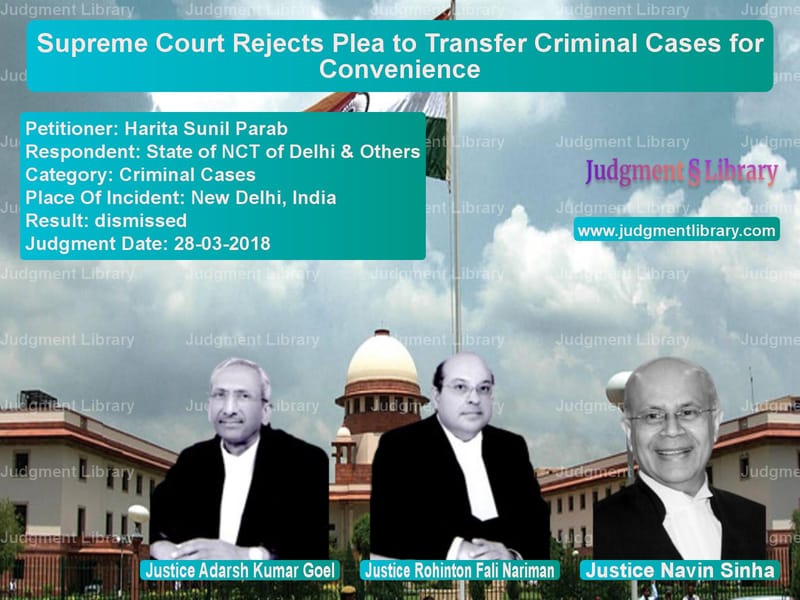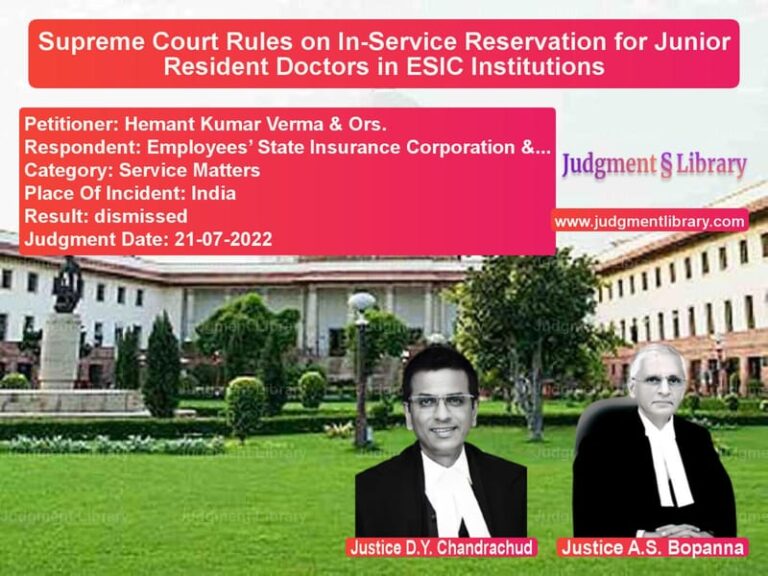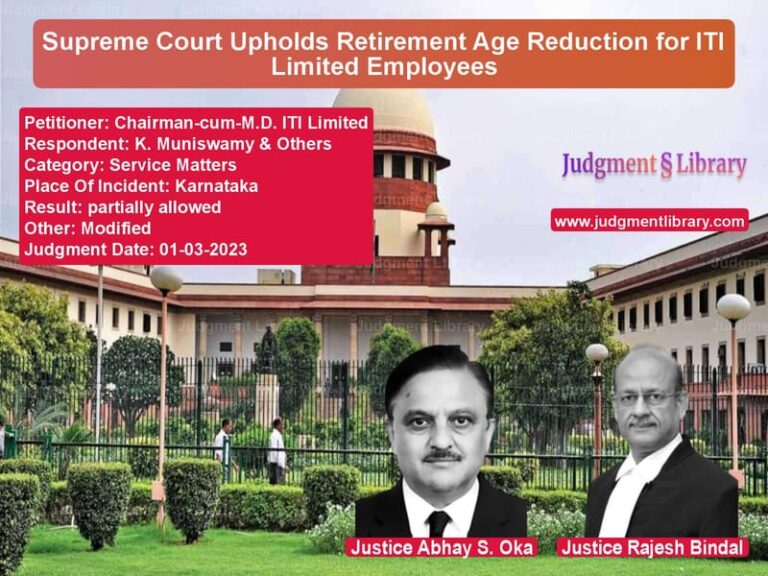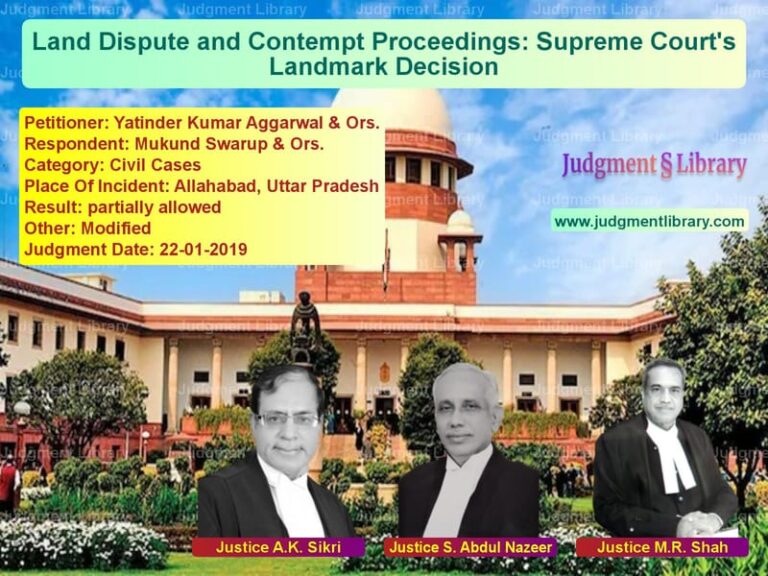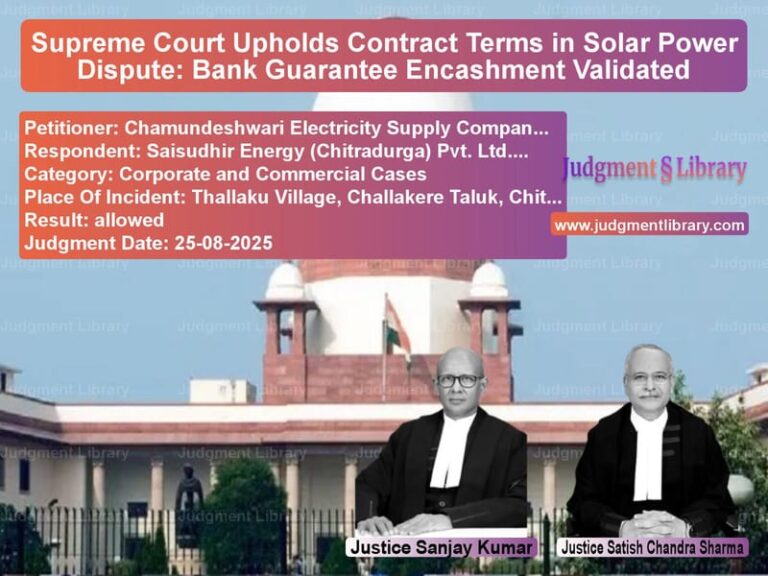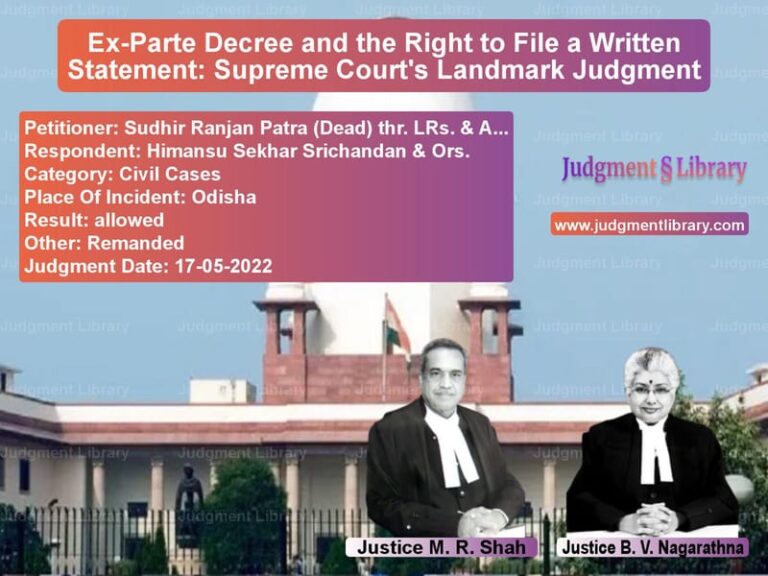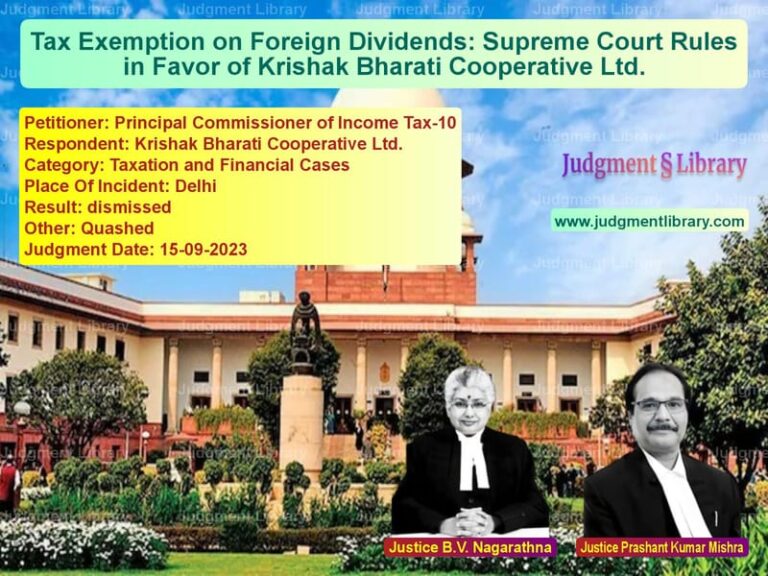Supreme Court Rejects Plea to Transfer Criminal Cases for Convenience
The case of Harita Sunil Parab vs. State of NCT of Delhi & Others concerns a request for the transfer of criminal cases to a different jurisdiction due to alleged inconvenience and apprehensions about the fairness of the trial. The Supreme Court, in this landmark judgment, denied the transfer petitions, emphasizing that mere inconvenience and unsubstantiated apprehensions are not sufficient grounds to move a case to another state.
This ruling reinforces the principle that criminal cases must be tried in the jurisdiction where the alleged offense occurred, ensuring that witnesses, the prosecution, and the justice system are not unduly burdened.
Background of the Case
The petitioner, Harita Sunil Parab, a practicing advocate in Mumbai, sought the transfer of two FIRs:
- FIR No. 351 of 2016, registered at Tilak Marg Police Station, New Delhi, under Sections 354, 354A, 323, 506, and 509 of the IPC.
- FIR No. 1742 of 2016, registered at Indirapuram Police Station, Ghaziabad (Uttar Pradesh), under Sections 379, 323, 376, 354, 506, and 420 of the IPC.
The petitioner alleged that the Delhi Police had failed to investigate her case fairly and that she was facing threats from the accused. She argued that her professional commitments in Mumbai were suffering as she had to frequently travel to Delhi and Ghaziabad for legal proceedings.
Respondent’s Arguments
The respondents, including the Delhi Police and accused individuals, opposed the transfer petitions, arguing:
- All witnesses, evidence, and investigative agencies were located in Delhi and Ghaziabad.
- The petitioner herself had filed multiple FIRs in Delhi, including one against an auto-rickshaw driver and another against hotel staff, showing her willingness to use the Delhi jurisdiction.
- The accused, who is also a practicing advocate in Delhi, would face similar inconveniences if the case was transferred to Mumbai.
Supreme Court’s Observations
The Supreme Court carefully analyzed the grounds presented by the petitioner and ruled that transferring the case to Mumbai would not serve the interests of justice. The Court stated:
“A case is transferred if there is a reasonable apprehension on the part of a party to a case that justice will not be done. A petitioner is not required to demonstrate that justice will inevitably fail. However, the apprehension must not only be entertained but must appear to the Court to be a reasonable apprehension.”
The Court further clarified:
“Convenience for the purposes of transfer means the convenience of the prosecution, other accused, the witnesses, and the larger interest of society, not merely the convenience of the petitioner alone.”
Key Findings of the Supreme Court
- The petitioner’s fear of an unfair investigation was speculative and unsupported by concrete evidence.
- The majority of witnesses and evidence were located in Delhi and Ghaziabad, making a transfer impractical.
- The accused and prosecution would be severely inconvenienced if the case were moved to Mumbai.
- The petitioner had traveled to Delhi for professional reasons in the past, showing that appearing for legal proceedings there was not an unreasonable burden.
Final Judgment
The Supreme Court ruled:
- The transfer petitions were dismissed.
- The petitioner was advised to seek remedies under the Code of Criminal Procedure if she believed the investigation was unfair.
- If the petitioner had concerns about her safety, she could approach the relevant authorities in Delhi and seek protection.
Key Takeaways from the Judgment
- Jurisdiction Matters: Criminal cases should be tried in the jurisdiction where the alleged offense took place.
- Mere Inconvenience Is Not a Valid Ground: The Court reaffirmed that personal inconvenience alone does not justify transferring a case.
- Fair Trial Standards: If a petitioner fears an unfair trial, legal remedies such as filing applications under the CrPC are available rather than seeking a transfer.
- Protection for Litigants: The Court acknowledged that if a petitioner faces genuine threats, she can seek protection from law enforcement.
Conclusion
This ruling sets an important precedent by clarifying the limited circumstances under which criminal cases can be transferred. The Supreme Court’s decision ensures that justice is administered efficiently, without unnecessary delays caused by unwarranted jurisdictional shifts.
Petitioner Name: Harita Sunil ParabRespondent Name: State of NCT of Delhi & OthersJudgment By: Justice Adarsh Kumar Goel, Justice Rohinton Fali Nariman, Justice Navin SinhaPlace Of Incident: New Delhi, IndiaJudgment Date: 28-03-2018
Don’t miss out on the full details! Download the complete judgment in PDF format below and gain valuable insights instantly!
Download Judgment: Harita Sunil Parab vs State of NCT of Delh Supreme Court of India Judgment Dated 28-03-2018.pdf
Direct Downlaod Judgment: Direct downlaod this Judgment
See all petitions in Bail and Anticipatory Bail
See all petitions in Fraud and Forgery
See all petitions in Attempt to Murder Cases
See all petitions in Judgment by Adarsh Kumar Goel
See all petitions in Judgment by Rohinton Fali Nariman
See all petitions in Judgment by Navin Sinha
See all petitions in dismissed
See all petitions in supreme court of India judgments March 2018
See all petitions in 2018 judgments
See all posts in Criminal Cases Category
See all allowed petitions in Criminal Cases Category
See all Dismissed petitions in Criminal Cases Category
See all partially allowed petitions in Criminal Cases Category

